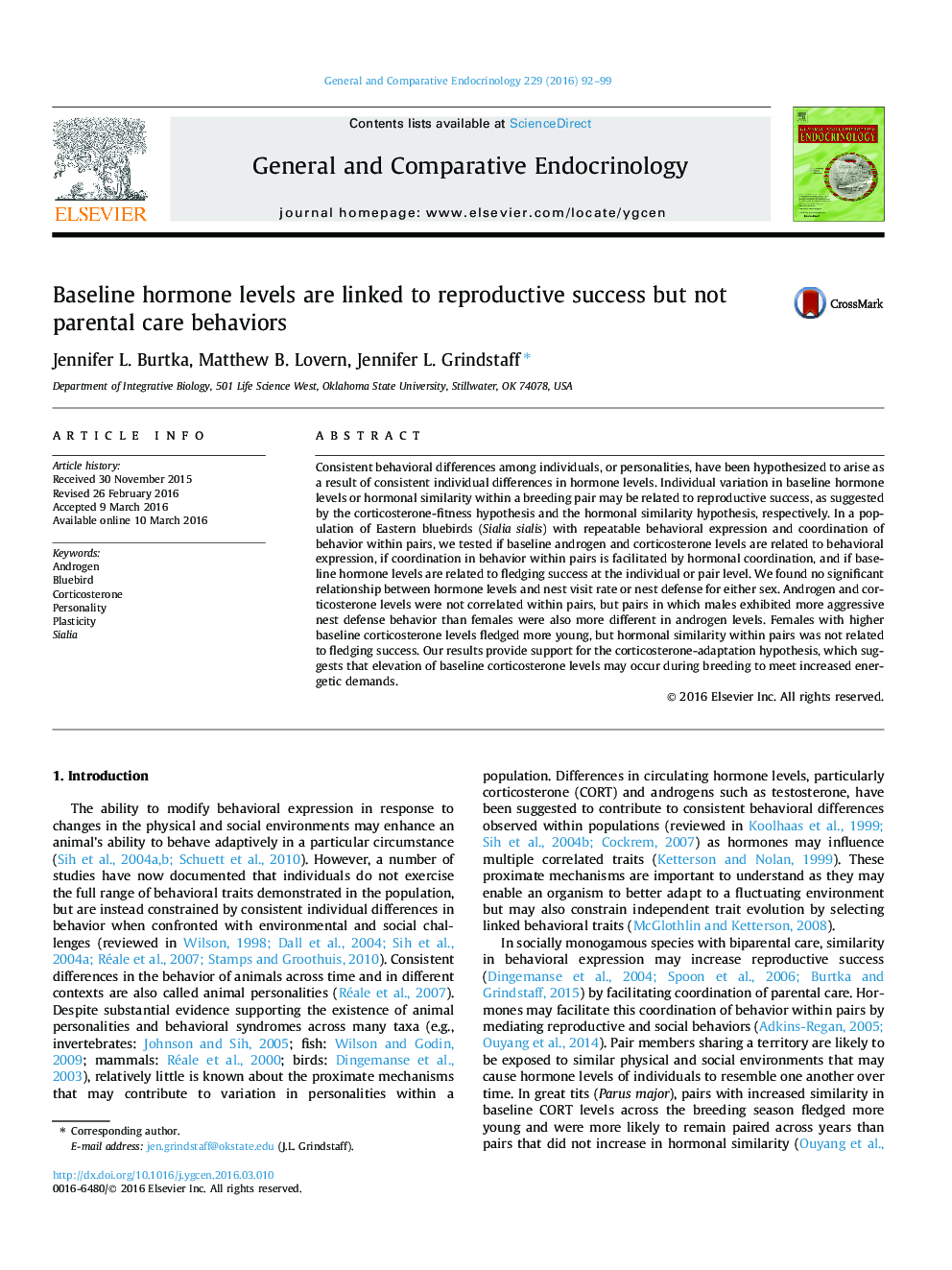| Article ID | Journal | Published Year | Pages | File Type |
|---|---|---|---|---|
| 2799844 | General and Comparative Endocrinology | 2016 | 8 Pages |
•Individual hormonal differences may predict parental behavior.•Corticosterone levels or pair hormonal similarity may predict reproductive success.•We tested these hypotheses in eastern bluebirds.•Androgen and corticosterone levels were not related to parental behavior.•Females with higher corticosterone levels fledged more young.
Consistent behavioral differences among individuals, or personalities, have been hypothesized to arise as a result of consistent individual differences in hormone levels. Individual variation in baseline hormone levels or hormonal similarity within a breeding pair may be related to reproductive success, as suggested by the corticosterone-fitness hypothesis and the hormonal similarity hypothesis, respectively. In a population of Eastern bluebirds (Sialia sialis) with repeatable behavioral expression and coordination of behavior within pairs, we tested if baseline androgen and corticosterone levels are related to behavioral expression, if coordination in behavior within pairs is facilitated by hormonal coordination, and if baseline hormone levels are related to fledging success at the individual or pair level. We found no significant relationship between hormone levels and nest visit rate or nest defense for either sex. Androgen and corticosterone levels were not correlated within pairs, but pairs in which males exhibited more aggressive nest defense behavior than females were also more different in androgen levels. Females with higher baseline corticosterone levels fledged more young, but hormonal similarity within pairs was not related to fledging success. Our results provide support for the corticosterone-adaptation hypothesis, which suggests that elevation of baseline corticosterone levels may occur during breeding to meet increased energetic demands.
